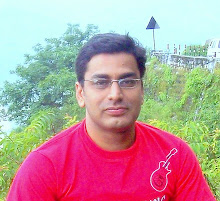A WARRIOR'S END
Wednesday, December 17, 2008
CHAIRMAN YASSER ARAFAT'S six decade long personal struggle for the emancipation of his people has come to an end. In contrast to other iconic figures who led their people against the forces of colonialism, the Chairman of the Palestine Liberation Organisation was unable to secure freedom for his nation before he succumbed to an undiagnosed illness. However, Mr. Arafat's achievement was in some ways even more monumental given the conditions in which the Palestinians began their national liberation movement. They had barely begun to create a sense of oneness when they were struck in full force by Western imperialism and the Zionist enterprise. The powers that drew the political map of the land between the Jordan River and the Mediterranean Sea refused to recognise even the existence of the people who had lived there for generations. For long these powers went along with the Zionist fiction that this territory was "a land without people" that should be given to "a people without a land." The Palestinians were given almost no succour and support when they were first driven out of 80 per cent of their homeland and very little effective help as they were subjected to colonial oppression in the strips of territory left in their possession. While the major powers in the so-called democratic world treated them with disdain, some of their Arab brethren were inclined to exploit rather than assist them. Mr. Arafat became the symbol of a scattered people because he, more than anyone else, preserved their national spirit and sustained their desire for liberty. In assessing the great warrior's achievements, there are those who say he missed a historic opportunity to secure his peoples' future when he refused to accept the deal Israel offered during the Camp David talks in 2000. This is a baseless assessment. The Palestinians, who were clinging on to the remnants of the patrimony left in their possession after the creation of Israel, were understandably reluctant to make further territorial and other compromises as they were asked to do at Camp David. The Zionist state was the real culprit behind the collapse of the Oslo processes because it refused to offer a settlement that Mr. Arafat could make his people accept. While Israel did make an improved offer at the follow-up negotiations held in Taba a few months later, it was by then too late for a settlement since the second intifada was under way. Mr. Arafat's critics are also in error when they blame him for the violence that has rocked the region for the past four years. It was the Israeli extremist, Ariel Sharon, who goaded the Palestinians into a violent uprising by arrogantly marching through the Holy Sites in Jerusalem. With Israel systematically destroying the administrative and security infrastructure the Palestinian Authority had established, Mr. Arafat was deprived of the means to stop the suicide bombers. The controversies arising out of the mismanagement of the Authority's finances are more troublesome. While no one has ever accused Mr. Arafat of misappropriating public funds for his personal use, he was unable to dispel the impression that this money was sometimes used arbitrarily to consolidate his political position.
In coming together to form a collective leadership, the different streams of the Palestinian national movement tendered the tribute that would have pleased their beloved Chairman most. This leadership is a manifestation of the spirit of national unity that Mr. Arafat created and sustained over decades. The smoothness with which the different factions overcame their differences shows that there was always an underlying willingness to work together. This owed in large measure to the governing style of a master tactician who took care to see that no faction was completely alienated. While Mr. Arafat never allowed anyone to challenge his pre-eminence in Palestinian politics and society, his people always found him approachable. The leader's life has come to an end but he has left a shining legacy for his followers to build upon



1 comments:
good sattire
Post a Comment